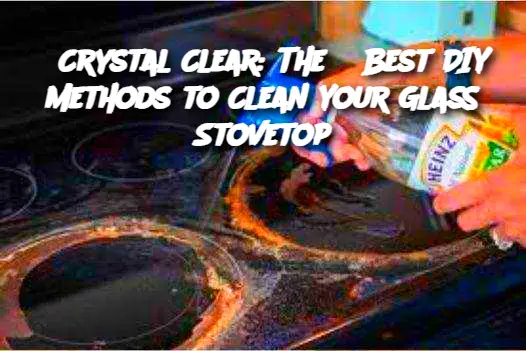Wipe down the surface thoroughly.
Buff with a dry towel.
Method 3: Lemon Juice + Baking Soda Paste
Mix lemon juice and baking soda into a thick paste.
Spread it over stubborn spots.
Let it sit for 10 minutes.
Scrub gently and wipe clean.
Method 4: Hydrogen Peroxide + Baking Soda Scrub
Sprinkle baking soda on burnt stains.
Drizzle hydrogen peroxide over the top.
Wait 10 minutes, then scrub with a sponge.
Wipe clean and rinse.
Method 5: Razor Blade + Soapy Water (for extreme grime)
Spray the surface with warm soapy water.
Gently use a razor blade at a 45° angle to scrape away burnt-on residue.
Wipe away debris and polish with a microfiber cloth.
Serving and Storage Tips:
Store your cleaning mixtures (like vinegar-water or soap-water solutions) in labeled spray bottles for quick access. Clean lightly after each cooking session to avoid build-up that needs heavy scrubbing.
Variations:
Swap vinegar for lemon juice for a fresh scent.
Add a few drops of essential oil to vinegar spray for aromatherapy while you clean.
Use commercial stovetop cleaners if you prefer store-bought over homemade solutions.
FAQ:
Q: Can I use these methods on all glass stovetops?
A: Yes, but always make sure your stovetop is completely cool and consult your appliance manual for any material-specific cautions.
Q: Will a razor blade scratch my stovetop?
A: Not if used correctly at a 45° angle and with gentle pressure. Avoid using dull or rusted blades.
Q: How often should I deep clean my glass stovetop?
A: A light wipe after each use is ideal. Deep cleaning once a week or biweekly is sufficient for most households.
ADVERTISEMENT

